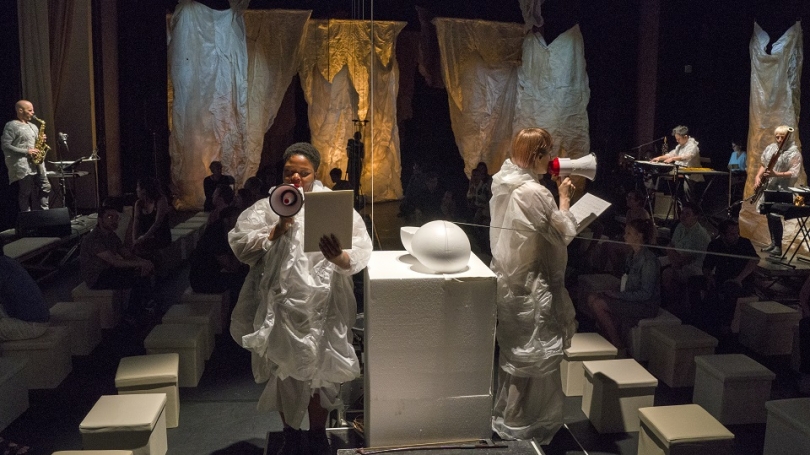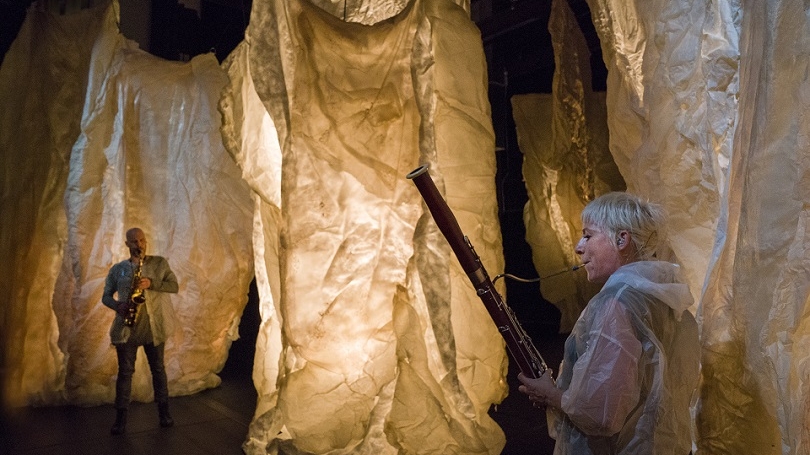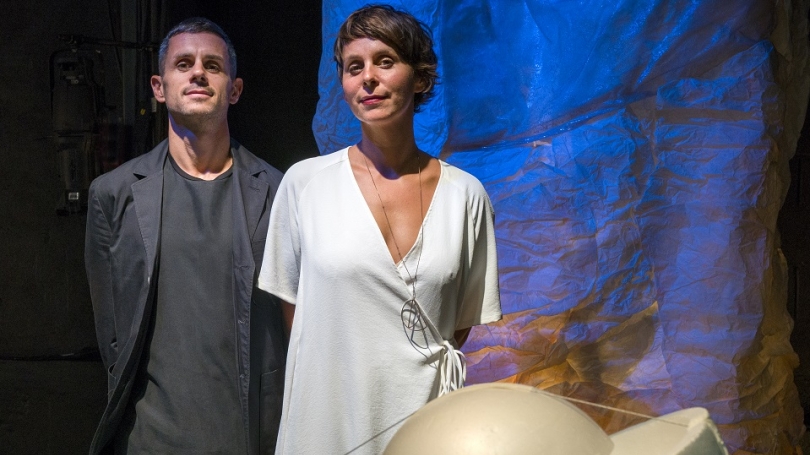Sound / Sculpture / STEM: The Deeper Rhythms of an Earth in Peril
A Dartmouth composer takes on the existential issue of climate change in The Force of Things: An Opera for Objects, at the Hop April 1 to 5.
Can a work of art cause us to ponder huge, almost ungraspable questions? In 2014, as they began working on The Force of Things, Dartmouth composer Ashley Fure and her brother Adam Fure set out to make a work that does just that.
"We were trying to envelope the audience in an immersive, multi-sensory terrain but to wrestle with questions that were pressing and relevant and heavy for us as makers and also as a generation. The most crucial question, we felt, was the impending climate crisis."
They wanted to avoid a didactic approach and instead attune audience members to the deeper, slower rhythms of an Earth in peril. "Our goal was address the climate crisis not through narrative, not through characters or statistics or disaster-porn images of fire and drowning islands, but to see if we could draw the audience's attention away from human-centered melodrama … and toward non-human materials and the kind of processes that were unfolding in the environment around the audience." Hence the work's subtitle, "An Opera for Objects."
The Force of Things premiered in Germany in 2016 and in New York in August 2018 at Lincoln Center's Mostly Mozart Festival. In this work, audience members move through a landscape of Adam Fure's suspended iridescent sculptural pieces, subtly shifting to an eerie, compelling soundtrack created by musicians and singers—the renowned International Contemporary Ensemble—perched throughout the space.
Now the work comes to Dartmouth, Fure's home base, April 1–5 in the Moore Theater—offering Dartmouth students and the wider Hop audience the chance to experience a work The New Yorker called "staggeringly original … the most purely visceral music-theatre outing of the year."
Still more, The Force of Things is at the center of Convergence, a Hop project exploring how the arts and sciences can and must inform each other in higher education to train students for the kinds of work and challenges they will face in coming years. Convergence includes an April 3 public "town hall" gathering convened by the National Academy of Sciences, Engineering, and Medicine, focused on why and how to reunite the arts with the STEM disciplines; a cross-disciplinary experiential learning module for Dartmouth students; and pre-show talks by noted environmental scientist Bill Schlesinger '72 and others. Convergence is funded in part by The Arthur L. Irving Institute for Energy & Society.
What will it be like to remount this work in 2020, with the public that much more aware of climate change in the wake of Greta Thunberg, Climate Strike Fridays and dire UN reports? "It will remain to be seen," Fure said. "New Hampshire is experiencing shifting temperatures, but we're not on the forefront of the more violent changes. I would like to think that that urgency is rising in this community, and that there is a greater openness about coming together around new solutions. I would feel deeply honored if The Force of Things allows us to open up some new lines of communication among the folks who come."


